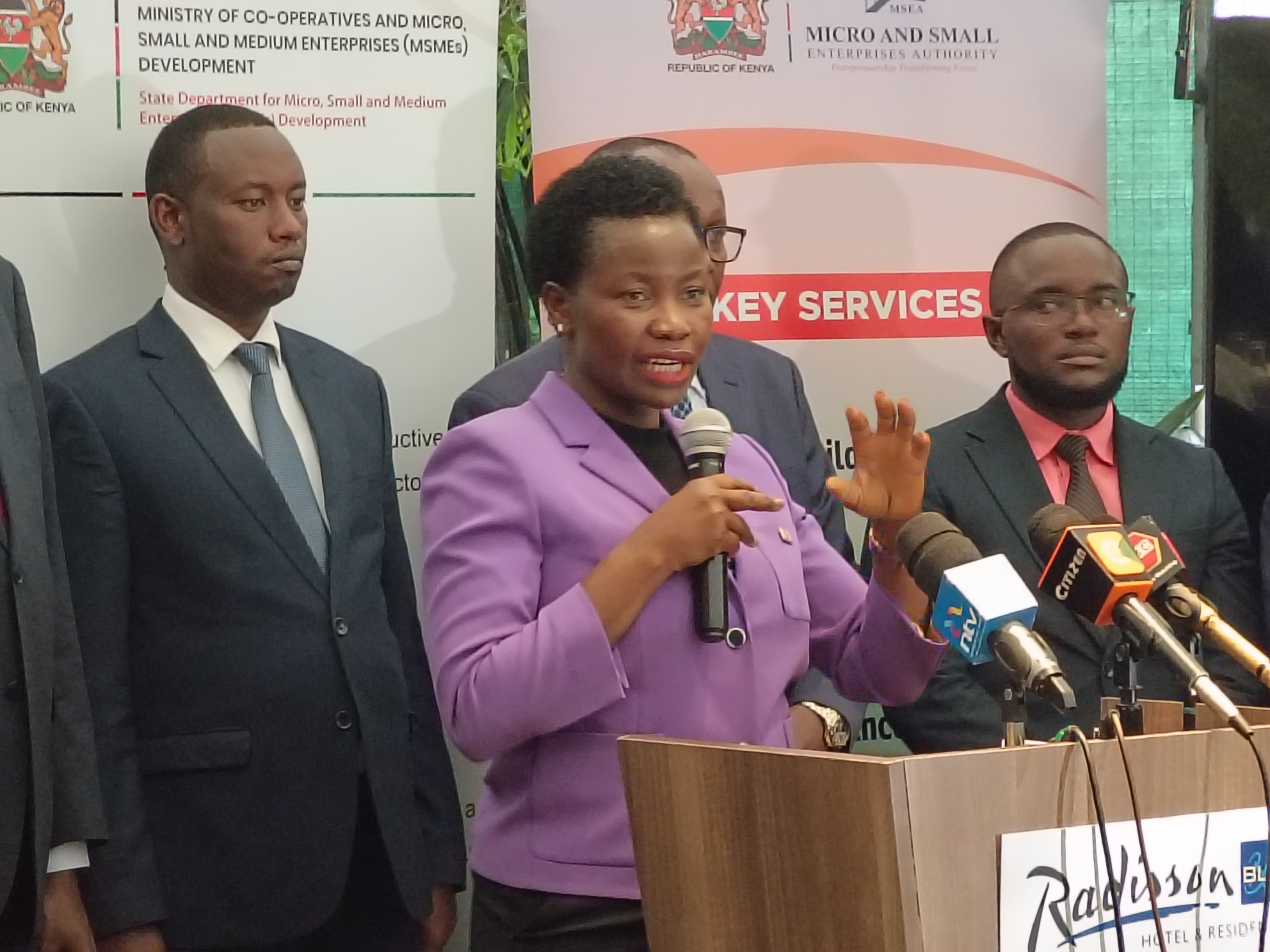
The government is considering engaging insurance companies on compensation of the businesses affected by the June 25 protests and is even mulling law changes tmake this mandatory..
This is after businesses across the country woke up to billions in losses from vandalism, theft and burned down property.
Violent protests broke out across at least 27 counties in Kenya on Wednesday, leading to widespread looting and property destruction, with small and medium businesses reporting huge losses.
Despite only 37 per cent of Micro Small and Medium Enterprises having insured their businesses, the ministry of MSMEs says it will have to sit down with the underwriters to see how these enterprises that were vandalised will be cushioned.
Data by the Insurance Regulatory Authority show that 63 per cent of MSMEs in the country don't have any form of insurance as of December 2024.
Without divulging whether the government will act as a guarantor, for the underwriters the Principal Secretary, state department for MSMEs development Susan Mang’eni said that as part of the agreement, the government will have to push these to register for insurance.
“I promise us to have an engagement with them so that we find a way, even if it means reviewing the insurance framework in this country,” said PS Mang’eni.
“Yes, we know most of the MSMEs are currently not insured, but this is one intervention that we are going to implore unto them to consider insuring.”
The move, according to the government is meant to reverse a trend similar to the one witnessed in 2024 where many businesses destroyed in the 2024 Anti-Finance Bill protest remain shut to this day, further deepening unemployment and poverty.
Already a rapid response team has been deployed to asses the affected enterprises and map ways to assist them.
“And there is already some level of appreciation there in the market. And I think this conversation that we're going to have, government with the insurance company, will figure out a way of making this happen. Because it's important that it does happen,” added the PS.
In Nairobi, the epicentre of the unrest, traders around Bus Station, Mfangano Street, Khoja, and Moi Avenue bore the brunt of the chaos.
Shops were vandalised, boutiques ransacked, and some buildings set ablaze. Wines and spirits stores were emptied, while electronics and fashion outlets were not spared.
Kenya Bankers Association (KBA) CEO Raimond Molenje, despite expressing concerns with the rising rate of loan defaults which might further be exacerbated by the destruction of property and businesses, said that the banking sector has set aside Sh150 billion for on lending to MSMEs this year.
The banking sector has doubled its annual credit commitment to micro, small, and medium-sized enterprises (MSMEs), with KBA announcing a target of Ksh 150 billion this year—up from Sh75 billion in 2024.
“As banks, our primary aim is to ensure credit flows to Kenyans and their businesses. This year alone, we’ve already disbursed Sh81 billion to MSMEs between January and May, and we remain committed to maintaining a minimum of Sh150 billion annually for the next three years,” said Molenje.
Kenya’s private sector growth has remained largely stagnant over the past year, but Molenje expressed confidence that the renewed banking sector commitment, coupled with collaborative reforms, would boost the growth rate to at least 10 per cent annually by the end of 2025.
“Banks have the cash—led by Equity Bank here today—but the ecosystem must be better structured. Through MSME Connect, we’re confident that we can empower small businesses and drive economic progress,” Molenje concluded.















